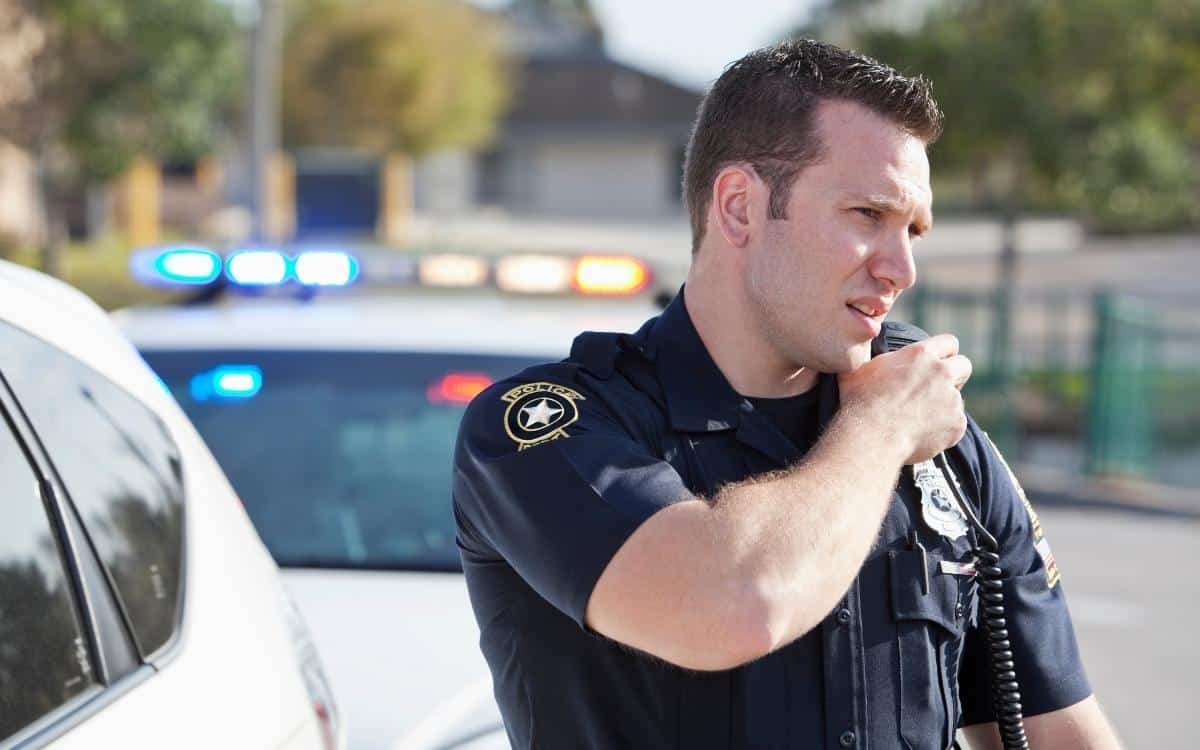Most people do not think about it, but police officers have the same lives as everyone else. They own houses, buy vehicles, have families, raise kids, etc.
The key difference is their jobs, which affect every aspect of their lives more than most people's jobs, including dating.
If you are dating a police officer or are thinking about dating one, here are some ground rules you need to know to ensure your relationship is as fulfilling as possible.
Cops Are People Too
We often think of the police as separate from the rest of us, which is partly true. Few other occupations hold so much sway over the behavior and actions of the public, and almost no other jobs hold as much danger daily as a police officer.
That said, cops have the same worries, interests, goals, and motivations regarding relationships as the rest of us. They do not want special treatment or for you to treat them as different from any prospective partner.
The Job Is Unpredictable
Cops are required to work all hours of the day and night and respond to emergencies, sometimes even when they are “off the clock.”
Holidays can also be difficult to schedule because few on the police force get every holiday off, and many do not have any guarantees they will not have to work.
Plus, because law enforcement does not pay much money, many police work overtime to bring in more cash, which means they spend much more time on the job than in a normal full-time job.
Add that to the natural unpredictability of policing the public, and it can be a dicey proposition to count on any stability of schedule or availability.
The Danger Is Part of the Job
When you go to work, there is a very slim chance you will get so much as a papercut. Every shift an officer works, there is a possibility they will become injured, made sick, or even killed.
Even something as benign as a traffic stop or warning for travelers in construction zones can turn bad in many ways.
Here are a few common examples of how incidents that are seemingly not dangerous can turn very dangerous very quickly:
Traffic Control
Officers frequently provide “detail” support by serving as a warning beacon at highway construction sites. These events can include using the lights on their car to warn traffic of an upcoming construction zone or directing traffic personally.
In either case, all it takes is one inattentive or impaired driver striking the officer or their vehicle for the situation to turn deadly.
Maneuvering Through Traffic
Officers frequently engage in high speeds and risky maneuvers with their vehicles, whether to get to the scene of an incident or an accident or while in pursuit of someone fleeing.
Cops have driving training, so the possibility of making a mistake is minimal. That said, the risk of someone else creating a traffic risk or making a mistake trying to get out of the way is high.
Emergency Response
Cops respond to traffic accidents all the time, and each one can potentially pose a risk to their well-being.
Any accident can involve exposure to blood and other bodily fluids, fire, razor-sharp parts of a vehicle, extreme heat from the accident and the environment, and much more.
Any accident can result in an emergency responder getting injured.
Emergencies are not limited to accidents either. Some include rescuing individuals in:
- Fires in buildings or open spaces
- Floods
- The aftermath of weather events like hurricanes and tornadoes
- Responding to violence at public events or in public places
Helping the Sick
Police also respond to situations where individuals might be very sick because of infection and self-inflicted illnesses. The risks in these situations include:
- Performing welfare checks on the sick and those who are a suicide risk
- Responding to overdoses that can involve deadly chemicals
- Performing life-saving actions for those that experience heart attacks, stroke, etc.
Incidents Including Violence
Some police activities are inherently dangerous and include actions and activities that police know are potentially deadly or could turn deadly very quickly. These can include:
- Drivers or passengers turning violent during traffic stops
- Individuals turning violent when being arrested
- Individuals turn violent when an officer is serving a warrant
- Individuals turning violent when responding to a loved one's arrest
- Responding to violent incidents such as gunfire or knife fights
- Responding to robberies and hostage situations
- Responding to individuals threatening to harm themselves or another person
- Intervening in domestic violence incidents
When you date a cop, you must assume that every shift could hurt the officer or expose them to deadly violence.
Most do not, but no one knows when a shift might turn for the worst. You must be prepared to handle that the person you are dating could be made sick, injured, or even killed in the line of duty.
You Must Be Strong Mentally
That amount of danger produces a lot of stress for the officer but also for anyone involved with them.
Understanding that the person you care about could be injured, sickened, or killed any moment they are working and in some situations, even when they are off the clock, is stressful for you to take on.
That is why a very strong person must mentally date a cop.
For example, with every other type of person you date, except other emergency responders, you know that their exposure to the risk of injury or death is minimal.
Not many accountants or assembly-line workers, for instance, have to deal with violent individuals that want to harm them.
Even jobs where tempers can occasionally flare, such as being an attorney or a doctor, do not carry an inherent risk of violence.
However, dating a police officer increases the risk of injury or worse. In some cases, such as the recent pandemic, an officer can come in contact with a potentially deadly disease and infect you.
There are endless situations where the risk of harm is great to the officer you are dating and yourself.
Dealing with that day in and day out requires a lot of strength mentally. In the back of your mind, you will worry about the safety of the person you are dating every time they put on the uniform.
Add to that the long hours, where they cannot communicate with you, and the stress levels increase even higher.
The stress levels go through the roof if they are involved in an incident.
Your Physical, Emotional, and Mental Health is Key
Because of the stress, your emotional and mental health may take a beating.
You need to make sure you have the mental and emotional health framework necessary to maintain your well-being even as you know the person you are interested in may be experiencing incredible stress levels.
It is a good idea for both of you to seek counseling throughout your relationship.
Understanding the Warning Signs
Not everyone can endure that amount of ongoing stress, even if they have a great mental and emotional health network.
For many people, the stress will only add tension to the relationship and will eventually be too much for the person to endure.
A bad reaction to the stress of dating a cop can lead to issues personally that need professional help. Those include, but are not limited to:
- Drinking too much
- Over-medicating with legal medications
- Impulse control issues
- Using illicit drugs
- Anger management issues
- Stress-related health problems
- Emotional instability and breakdowns
To ensure you can head these issues off early, you must learn to recognize the warning signs. Recognizing the warning signs means assessing yourself or having a friend or family member you trust mindful of the signs and bring them to your attention.
Being receptive to discussions about drug or alcohol use or mental and emotional health issues is critical.
Seeking Timely Help
When dating any first responder or anyone with a dangerous job, stress comes with the territory, but the key to managing it is knowing what to do when warning signs appear.
Get your medical “team” worked out before you have a problem.
Find a therapist and make sure you know, or a friend or family knows how to contact a medical provider, etc. before you have a health concern migrate into a health crisis.
Taking care of your mental and emotional health is for your sake but also so that you do not add to the stress of the person you are dating.
You Must Be Independent
If you need constant contact and affirmation from someone you are dating, engaging in a relationship with a cop or other first responder might not be a good idea.
Police officers are always on call, even when off the clock, meaning that if they encounter a situation when they are not on duty, they still may feel compelled to respond to it.
As a rule, off-duty law enforcement will respond to an accident or emergency response if they are the only law enforcement personnel in the vicinity or if they can render immediate aid.
They will not respond, usually, to a law enforcement incident, or if they do respond, it will not be in their official capacity.
For example, they would respond to an ongoing crime as a private citizen.
Understand Their Role When Off Duty
That is an important distinction to understand as it means that you might have a date or your time spent with the person you are dating be interrupted as they respond to an incident.
They will not always respond and often only render assistance until other, on-duty first responders arrive at the scene.
You must also realize that they are not under any legal obligation to respond to many types of incidents. Their judgment in those situations is the driving force behind any action they take or do not take.
Expecting law enforcement to respond to an incident automatically can create unrealistic expectations, so it is best to defer their judgment in those situations.
They Can Be Called Into Work
An off-duty officer usually will enjoy a shift off with no interruption. There might be, however, situations where they must go to work on very short notice.
Short notice calls can include helping respond to an emergency or assisting other officers in their work performance.
There are also some situations where they will be called into work suddenly, although those situations are usually exceptions to the rule.
Those can happen when:
- There is a lack of available officers (such as when an illness hits a department hard)
- More officers than usual are needed (such as when there is an emergency incident)
- Another officer has to leave work
- They have a special skill within law enforcement (they are a K-9 handlers, members of an elite law enforcement group like SWAT, etc.)
- They are in proximity to an incident that requires a quicker response to get it under control (such as in the aftermath of a weather event like a hurricane or tornado)
Additionally, officers can take on work to address incidents the department is aware might be looming.
Looming events mean they might stay behind during a potential event even if you, as a private citizen, must evacuate.
A common situation where this can happen is when an area is facing a looming weather event such as a hurricane where they will be needed, but it is impossible to plan out specific hours of duty.
During these times, they might be on-call or kept on duty throughout, depending on the event and department policy.
They Are Looking for More Work
As mentioned, officers do not get paid a lot of money in most law enforcement positions. Less pay means the officer you are dating might be looking to pick up hours or overtime.
That can mean they have to go to work on short notice. It also can mean they moonlight (where it is allowed) to pick up extra cash.
Remember, when they do this, it is to make more money to offset lower wages.
Be Able to Go It Alone
As mentioned, if you are not independent as a person, dating a cop might not be for you. When the person you are dating gets called into work, you might have to entertain yourself.
That means you need to be able to cope with a sudden change of plans, including canceling plans and then be able to occupy yourself while they are gone.
Going it alone can be particularly frustrating during holidays.
Give Them Space When Needed
A cop has a very difficult job that involves a lot of stress. Like all humans, your cop boyfriend or girlfriend will need to decompress, which might not involve you immediately or all the time.
Give your date room to decompress, and do not press them to discuss their job with you. With many officers, the job is best left on the job, and home life remains as separate as possible.
Even if you know they encountered a stressful situation, you need to let them bring it up if they want to discuss it.
If not, do not press. If the officer you are dating indicates that they have discussed something about their job as far as they are comfortable, leave it be.
Some Stuff Will Remain Undiscussed
An officer has some work-related stuff they can discuss and some they cannot. Suppose some part of their work involves an ongoing investigation or someone well known.
In that case, talking about it with anyone who is not directly involved with or works in law enforcement would likely break departmental policy and even the law.
What happens at work often is off-limits when discussing it with private citizens, no matter how close you are or where your relationship ends up.
For example, police officers have all sorts of privacy laws they must observe. They also must be careful not to reveal information that might jeopardize an investigation.
They cannot necessarily confide in you on some matters because it might be against the law, or they might not want to involve you. It does not matter if they trust you implicitly.
You must respect that boundary, or it will become an issue in your relationship.
If you are the type of person that hates when your partner knows something you do not, dating an officer will be difficult. Badgering them for information is never a good idea.
Often, Silence Is for Your Benefit
Some issues cannot be discussed because of the nature of the information. Those types of incidents can include:
- The arrest of a prominent community figure
- Details of a crime or crime scene
- Details about an investigation
- Pending police actions
It is not that they do not trust you. For your own sake, the less you know, the better off you are. Telling you some information can make you a party to the investigation or even liable for communicating that information to a third party.
Sometimes, your partner will be silent on an issue or incident, so you are not exposed legally or otherwise.
Understand PTSD and Counseling
Most officers see things the rest of the public would cringe at, and witnessing them would scar them for life. Depending on where they work, those events could be a daily occurrence.
The same toll it takes on a private citizen happens to a police officer, but part of their job is to manage it.
In some cases, that can include PTSD. When you start dating a cop, you may want to learn what PTSD means and how it can reveal itself to you.
You should also be open to them pursuing counseling and, if asked, encourage it.
Do not offer yourself for mental or emotional health issues, even if you are a mental or emotional health professional, as our involvement personally precludes you from being objective.
You can recommend they pursue counseling if necessary, but leave what to do to them.
If they pursue counseling or are in counseling, do not ask them about their sessions. If they want to discuss anything, they will bring it up.
Your role in this respect is to help them get the mental or emotional help and support they need, not be a part of it.
If they indicate they want to discuss something, listen and do not offer advice unless asked.
Be Mindful of Your Behavior
An officer is obligated by the law and their police department to uphold the law in all situations. If you engage in any behavior that crosses the line, they can and, in some cases, will arrest you.
Often, an officer might warn you not to do something around them. Always make sure you adhere to their wishes and do not ever push the envelope.
Imagine the pressure you put on someone when you do something against the law and their job, technically, is to address your behavior from a criminal law perspective.
The best approach is not to break the law, but if you do, honor them by not putting them in a situation where they must respond.
A good example of this is using illegal substances, like marijuana. As pot has been made legal in many places, it remains illegal according to federal law.
That means your police officer date would technically have to respond to your substance use. If you use pot illegally, broach the subject to allow them to map out their wishes.
Also, if you like the officer, give it up. Partaking in something that could get you in trouble with them or them in trouble if they ignore your behavior is not worth it for either of you.
If you do and are not willing to stop before it becomes an issue, maybe consider dating someone else.
Final Thoughts
Dating a cop is just like dating anyone else at certain levels. At some levels, however, dating a cop is decidedly different.
Making sure you understand the “rules of the road” will let you both enjoy the relationship and see if there is a larger future in the works without putting undue pressure on either of you.

Lauren Cook-McKay is the Vice President of Marketing at DivorceAnswers.com. She holds a Master’s Degree in Marriage and Family Therapy (MFT) from the University of San Diego and applies her training in private practice to helping couples struggling in their marriage. She believes there is hope in all marriages and strives to provide therapy to couples that will lead them back towards a loving marriage, or an amicable divorce that brings peace and closure.




